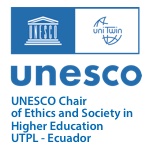Metaphysics as the Science of Essence
Abstract
If metaphysics is centrally concerned with charting the domain of the possible, the only coherent account of the ground of metaphysical possibility and of our capacity for modal knowledge is to be found in a version of essentialism: a version that I call serious essentialism, to distinguish it from certain other views which may superficially appear very similar to it but which, in fact, differ from it fundamentally in certain crucial respects. This version of essentialism eschews any appeal whatever to the notion of possible worlds in its account of the nature and ground of metaphysical possibility, for reasons that which I shall endeavour to explain and justify in this paper.
Downloads
References
Dummett, Michael (1981). Frege: Philosophy of Language, 2nd edn. London: Duckworth.
Fine, Kit (1994). ‘Essence and Modality’. In Philosophical Perspectives, 8: Logic and Language, ed. James E. Tomberlin. Atascadero, CA: Ridgeview.
Jackson, Frank (1998). From Metaphysics to Ethics: A Defence of Conceptual Analysis. Oxford: Clarendon Press.
Kripke, Saul A. (1980). Naming and Necessity. Oxford: Blackwell.
Kripke, Saul A. (1991). ‘Identity and Necessity’. In Identity and Individuation, ed. M. K. Munitz. New York: New York University Press.
Lewis, David (1986). On the Plurality of Worlds. Oxford: Blackwell.
Lewis, David K. (1991). Parts of Classes. Oxford: Blackwell.
Locke, John (1975). An Essay Concerning Human Understanding, ed. P. H. Nidditch. Oxford: Clarendon Press.
Lowe, J. E. (1998). The Possibility of Metaphysics: Substance, Identity, and Time. Oxford: Clarendon Press.
Lowe, J. E. (2002). ‘Material Coincidence and the Cinematographic Fallacy: A Response to Olson’. The Philosophical Quarterly 52: pp. 369–72.
Lowe, J. E. (2005). ‘Identity, Vagueness, and Modality’. In Thought, Reference, and Experience: Themes from the Philosophy of Gareth Evans, ed. J. L. Bermúdez. Oxford: Oxford University Press.
Lowe, J. E. (2005). ‘Ontological Dependence’. In The Stanford Encyclopedia of Philosophy, ed. E. N. Zalta, https://plato.stanford.edu/entries/dependence-ontological/.
Lowe, J. E. (2005). ‘Substantial Change and Spatiotemporal Coincidence’,.Ratio 16: pp. 140–60.
Lowe, J. E. (2006). The Four-Category Ontology: A Metaphysical Foundation for Natural Science. Oxford: Oxford University Press.
Lowe, J. E. (2014). ‘Recent Advances in Metaphysics: Ontological Categories and Categorial Schemes’. Disputatio. Philosophical Research Bulletin 3, nº 4: pp. 89–111.
Merrihew Adams, Robert (1974). ‘Theories of Actuality’. Noûs 8: pp. 211–31.
Olson, Eric T. (2001). ‘Material Coincidence and the Indiscernibility Problem’. The Philosophical Quarterly 51: pp. 337–55.
Plantinga, Alvin (1974). The Nature of Necessity. Oxford: Clarendon Press.
Putnam, Hilary (1975). ‘The Meaning of “Meaning”’. In Mind, Language and Reality: Philosophical Papers Volume 2. Cambridge: Cambridge University Press.
Putnam, Hilary (1983). ‘Why There Isn’t a Ready–Made World’. In Realism and Reason: Philosophical Papers Volume 3 Cambridge: Cambridge University Press.
Quine, W. V. (1969). ‘Existence and Quantification’. In Ontological Relativity and Other Essays. New York: Columbia University Press.
Rosen, Gideon (1990). ‘Modal Fictionalism’. Mind 99: pp. 327–54.
Wiggins, David (2001). Sameness and Substance Renewed. Cambridge: Cambridge University Press.
Copyright (c) 2016 © Analysis

This work is licensed under a Creative Commons Attribution-NonCommercial-NoDerivatives 4.0 International License.








